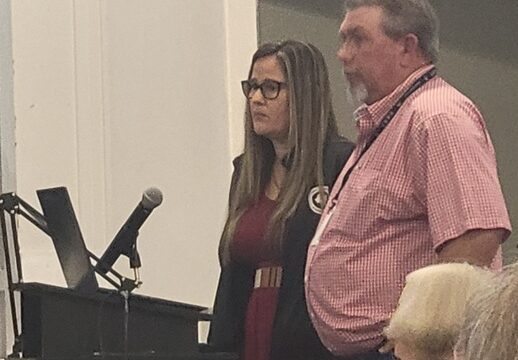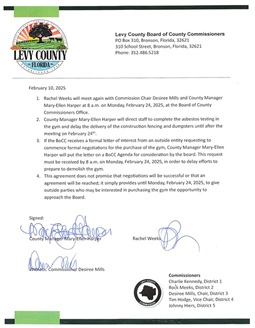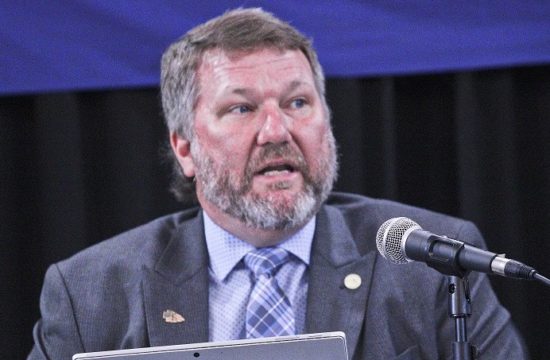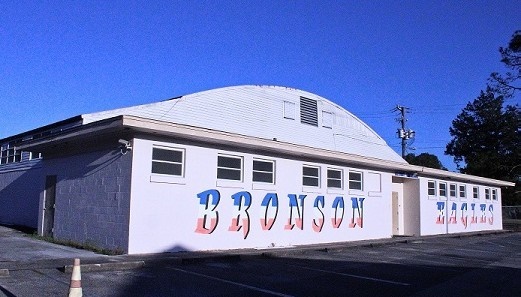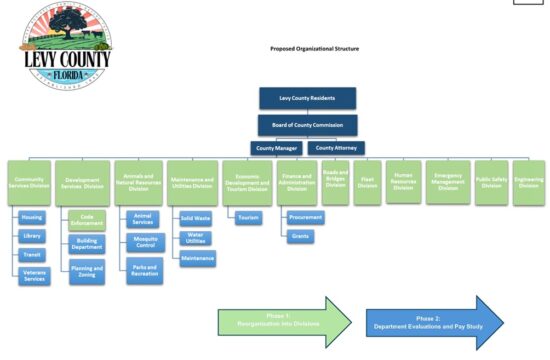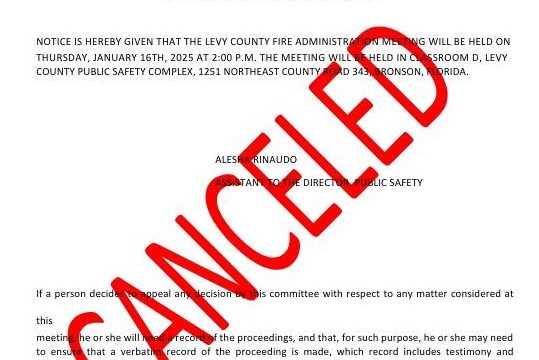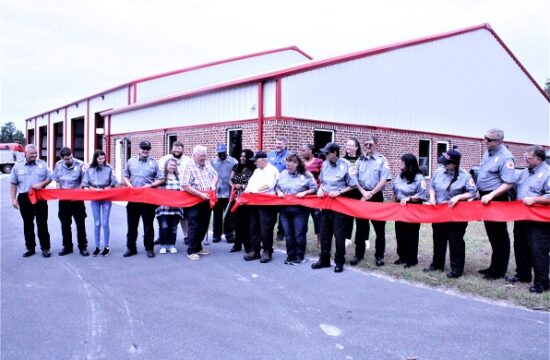By Terry Witt – Spotlight Senior Reporter
A planned solar farm near Chiefland was granted an amended zoning permit Tuesday by the Levy County commission to accommodate the 56 acres Duke Energy added to the project.
The total project area for the solar electricity generating plant has expanded to 771.4 acres and will produce 74.9 megawatts of power when it begins operation.
Duke Energy plans to build the solar plant on farmland formerly owned by the Chris Hardee and Leslie Fisher families off U.S. 129 near Chiefland.
Duke Energy bought the rights to the plant from Savion. The company is working with the county planner’s office on a building permit. Hundreds of solar panels will convert sunlight into electricity on the solar farm.
County Planning Director Stacey Hectus said Duke Energy originally ordered smaller solar panels for the solar farm but had to change course when it learned that obtaining the panels would take two or three years.
Hectus said the company found larger replacement panels that would work just as well but required the additional 56 acres to generate as much electricity as the smaller ones.
The Florida Legislature last year passed a bill that makes solar energy a permitted use in all agricultural zones, which means counties can’t turn down a solar farm like this one which is being built on land zoned for farming.
This particular plant will be constructed on what is now mostly pasture and cropland just outside the Chiefland city limits.
The facility’s official name will be the Duke Energy Hardeetown Solar Plant named for the small community on Chiefland’s north end.
Commissioners had little to say about the solar farm because they don’t have any control over whether it is built.
That didn’t stop Levy County Historical Society President Toni Collins from giving her opinion when it came time for public comment.
“I am very much opposed to Duke Energy having any more land or facilities in Levy County. We’re very well provided for by Central Florida Electric Cooperative and recently, in the last two years, I’ve had experiences with Duke because of the historic building in Bronson,” Collins said.
She said she finds it interesting that the former Levy County property appraiser receives his electricity next door to the historical society building from Central Florida Electric Cooperative.
Collins added that she has had a very hard time dealing with Duke. When she called the company and asked if there was a local office, she said she was put on hold, and when the lady on the phone got back to her, she said, “It’s in Miami, Ms. Collins. I said where are you all located, Kentucky, Missouri, Tennessee, that’s about 5 ½ hours from me, so I am very opposed to this project.”
Resident Sally Collins asked commissioners what would happen to the solar panels at the end of their life span in 25 years.
Hectus said when the solar plant closes, the land returns to agricultural rural residential zoning on the zoning map and future land use map.
“They take all the pieces that can be recycled and the other stuff that is not recyclable goes in the dump,” Hectus said. “That’s Duke’s responsibility.”
“Will that electricity go to Levy County?” Collins asked.
Commission Chairman Rock Meeks said the early presentation given to commissioners is that the electricity will be marketed on the grid and can be purchased by Central Florida Electric Cooperative or other power companies.
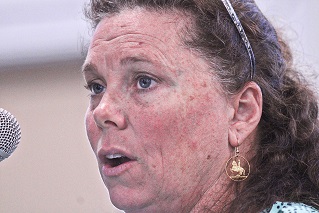
——————————–
Board of County Commission Regular Meeting April 5, 2022; Posted April 5, 2022



